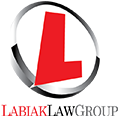When people say “bankruptcy” they mean a chapter 7 bankruptcy. This is the most common type of bankruptcy. It can apply to either a personal or business bankruptcy. Whether this is the preferred chapter for you will ultimately depend on your personal situation and your goals.
What Does a Chapter 7 Bankruptcy Do?
The objective of the chapter 7 bankruptcy is to eliminate your debt. Depending on the type of debt will depend on whether the debt survives the bankruptcy.
A chapter 7 bankruptcy wipes away the following kinds of debt:
- credit card debt,
- medical bill debt,
- pay day loans,
- personal loans, and
- other types of general unsecured debt
Secured loans such as a house or a car present a choice. If you want to keep the house or car, then you have to pay the debt. If you no longer want the debt, then you surrender the asset and the debt goes away as well.
Tax debt may also be eliminated in a chapter 7 bankruptcy. Though it requires a bit more analysis, but it is more common than you might think that tax debt goes away in a chapter 7 bankruptcy.
How Do I Qualify for a Chapter 7 Bankruptcy?
To qualify for a chapter 7 bankruptcy, you have to meet certain income limits. The income limits depend on your family size, your income, your expenses, and certain types of debts.
There is technically no upper income limit on what you can earn and your ability to qualify for a chapter 7 bankruptcy. However, realistically speaking as an example, if you are a family of 4 and are above $100,000 in income, it may be difficult.
How to Protect Your Assets
Once you have qualified financially, there can also be an issue with your assets. While you are able to keep a lot, if not all, of your assets, the ability to protect your possessions is not unlimited.
What Are Section 703 and 704?
In California, there are two ways of protecting your assets, commonly referred to as 703 and 704 exemptions. Both exemptions allow you to protect all of your household goods and clothing, as long as nothing is worth a significant amount of money. Both allow you to protect your retirement accounts up to over one million dollars.
Generally, section 704 is used to protect home equity between $75,000 and $175,000, depending on your situation, and over $3,000 in your vehicles. Section 703 allows for a wild card, which means anything you want currently worth about $27,000 and an additional $5,500 for your vehicles. Which code section is right for you depends on your specific situation when you file bankruptcy.
What Happens If I Exceed the Limits in Assets?
If you have assets in excess of these levels, then the trustee (the person who represents the creditors in a bankruptcy) may use some of these assets to repay your creditors. If you want to keep the asset, such as a car or house, and cannot exempt the asset, you can purchase the asset from the trustee.
How Long Does a Chapter 7 Bankruptcy Typically Take?
The typical chapter 7 bankruptcy takes about 3 to 4 months, start to finish. Typically, your involvement ends after about a month. If there are assets to sort through, the case may be open for years as the trustee does his/her job. No two cases are alike, so it is important to find an attorney who will treat your case in a unique and personal way.
Contact a Trusted Bankruptcy Attorney Today
At Labiak Law Group, Stephen Labiak understands how a bankruptcy can affect your life. Knowing this allows him to give his professional, honest, and courteous advice to his clients regarding their financial situations.
To determine if a chapter 7 bankruptcy is best for you, contact Stephen at his Fresno Visalia offices by giving him a call at (559) 274-5145 to talk about your situation and how he can help you.
